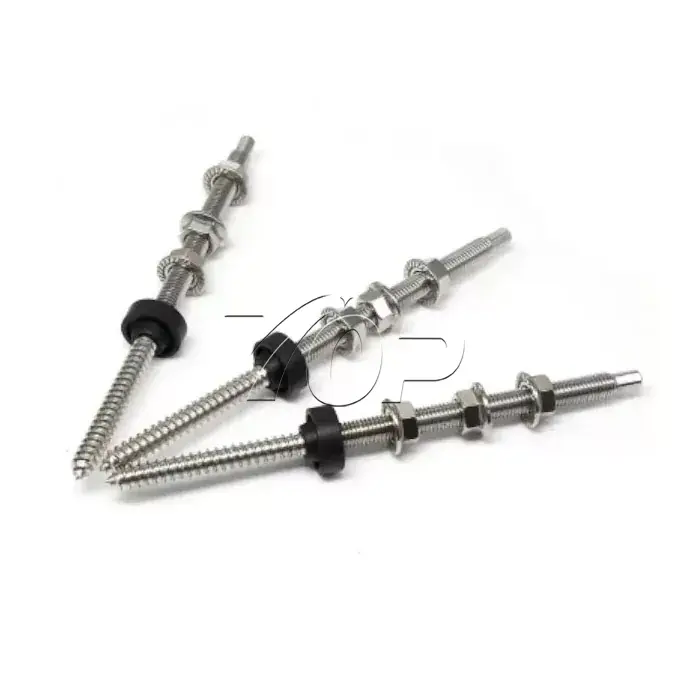Hanger Bolts: A Versatile Fastening Solution
2025-03-31
In the world of construction, woodworking, and industrial applications, choosing the right fastener is crucial for ensuring strength and stability. One of the most versatile fasteners used across different industries is the hanger bolt. Known for its dual-thread design, a hanger bolt provides secure mounting for various materials, making it an essential component in furniture assembly, solar panel installations, and structural framing.
What is a Hanger Bolt?
A hanger bolt is a type of fastener with threads on both ends, designed for securing objects to wood, metal, or other surfaces. One end has a wood screw thread for embedding into materials like wood or plastic, while the other end features a machine screw thread, allowing nuts or other hardware to be attached. This unique design makes hanger bolts an effective solution for mounting and suspension applications.
Key Features of Hanger Bolts
1. Dual-Thread Design
The combination of wood screw and machine screw threads allows for strong and stable connections in different materials.
2. Corrosion Resistance
Many hanger bolts are made from stainless steel or coated with zinc to prevent rust and ensure long-lasting performance.
3. High Load Capacity
Due to their robust construction, hanger bolts can support heavy loads in furniture, construction, and industrial applications.
4. Easy Installation
Hanger bolts can be installed using simple tools like wrenches or drill drivers, making them convenient for both professionals and DIY enthusiasts.
5. Versatility
These bolts are used in woodworking, electrical installations, and even solar panel mounting systems due to their adaptability.
Common Applications of Hanger Bolts
Furniture Assembly
Hanger bolts are widely used in assembling wooden furniture, such as tables, chairs, and cabinets. They provide a secure way to attach legs and other components while allowing for easy disassembly.
Solar Panel Mounting
In renewable energy applications, hanger bolts play a key role in mounting solar panels onto rooftops or frames. Their sturdy design helps keep panels securely in place, even in harsh weather conditions.
Construction and Framing
Builders and contractors use hanger bolts to attach beams, brackets, and other structural elements in wooden or metal frameworks. Their strong grip ensures durability and safety in various building projects.
HVAC and Electrical Installations
Hanger bolts are often used in HVAC systems and electrical installations to suspend ducts, pipes, and conduits. Their ability to hold heavy loads makes them ideal for these applications.
Automotive and Machinery
Some automotive and industrial machinery manufacturers use hanger bolts for securing parts in engines, equipment, and other mechanical systems. Their strength and adaptability make them a valuable fastening solution.
How to Install a Hanger Bolt
1. Drill a Pilot Hole
Start by drilling a hole in the material where the wood screw end of the hanger bolt will be inserted. The hole should be slightly smaller than the diameter of the screw threads.
2. Insert the Hanger Bolt
Use a wrench, pliers, or a double-nut technique to drive the wood screw end into the material. Ensure that the bolt is firmly secured.
3. Attach the Hardware
Once the hanger bolt is installed, the machine-threaded end can be used to attach nuts, brackets, or other components as needed.
Conclusion
A hanger bolt is a simple yet highly effective fastener that plays a vital role in multiple industries. Its ability to connect different materials securely makes it an essential tool for furniture makers, builders, and engineers. Whether used in construction, solar energy, or industrial applications, a hanger bolt ensures strong, reliable, and long-lasting connections.



